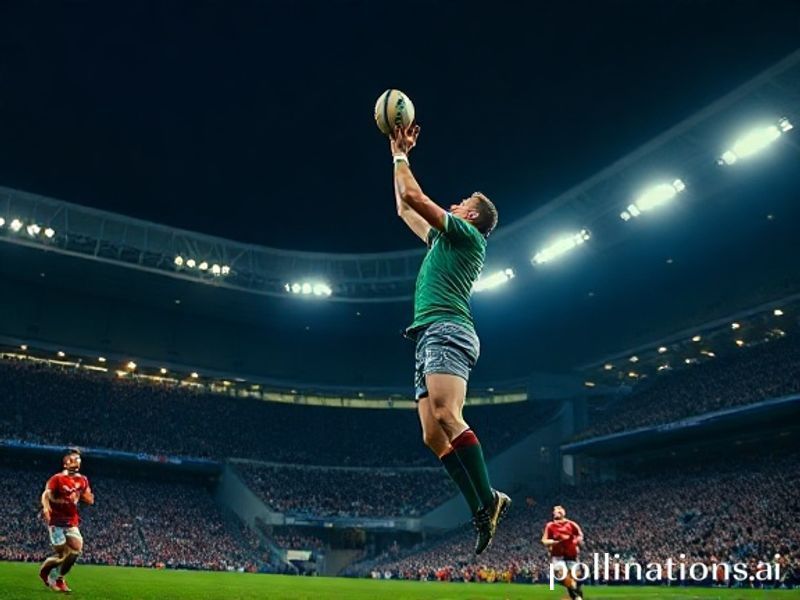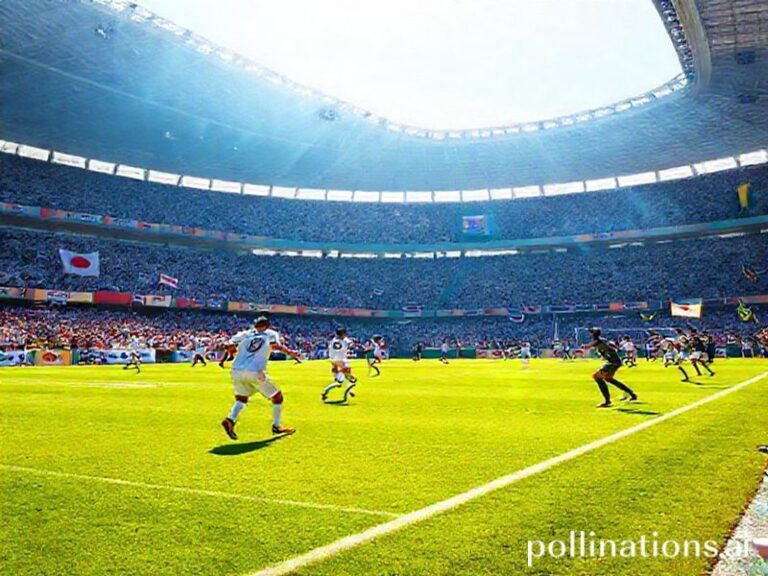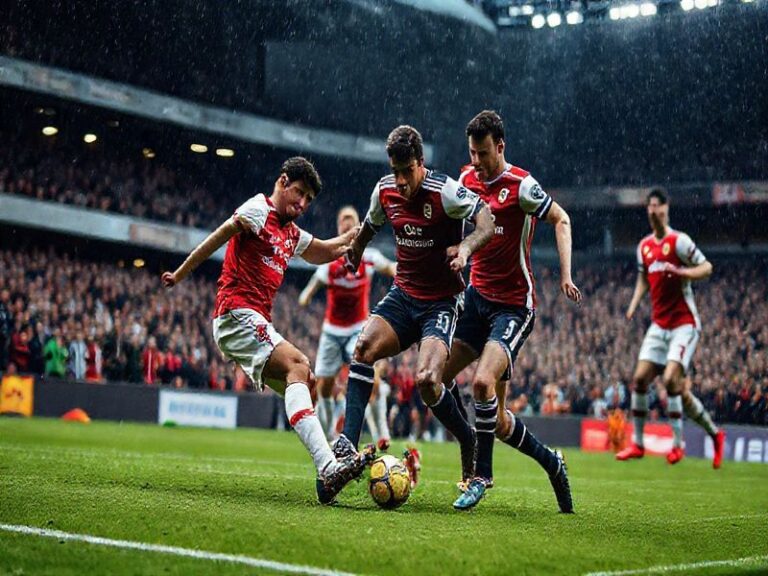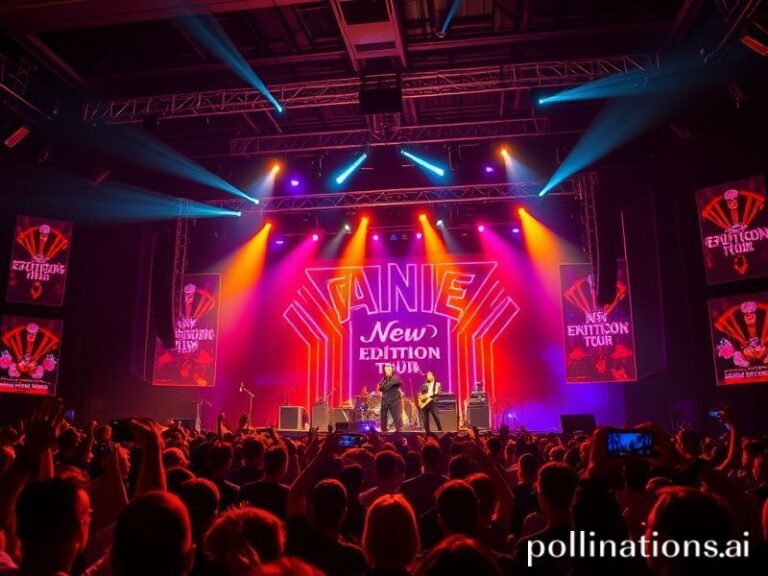Rugby World Cup 2025: How the Planet Decided to Settle Its Differences with a Scrum
Rugby World Cup 2025: When the World Decides to Beat Each Other Up Politely
By Our Correspondent, Nursing a Concussion of the Soul
England, 7 September 2025 – While the planet smolders gently under record July temperatures and central banks play “who can spook the markets faster,” twenty nations have agreed to settle their differences the old-fashioned way: fifteen-a-side, eighty minutes, and a level of sanctioned violence that would get you arrested anywhere outside Twickenham. Welcome, dear reader, to the Rugby World Cup 2025, the quadrennial festival where geopolitical anxiety wears mouthguards.
The tournament, hosted exclusively in England for the first time since 2015, arrives like a polite barbarian at afternoon tea. White-clad stewards still direct you to your seat with the same clipped vowels used to colonize half the globe, only now they scan your QR code first. Inside the stadiums—refurbished at a cost modestly described by the Treasury as “two new aircraft carriers and change”—the global elite gather to pretend that shoulder-charging someone into the 22nd row is a metaphor for free trade.
Global Context, or “Why We’re All Here Instead of Fixing Stuff”
In 2025 the UN lists 32 active conflicts, AI has started ghost-writing resignation letters for middle managers, and TikTok just taught your toaster to unionize. Against this backdrop, rugby offers comforting simplicity: one ball, two try-lines, and a referee brave enough to tell a 120-kilo Tongan flanker he’s been naughty. The sport’s governing body, World Rugby, insists the event will “unite humanity.” Humanity, for its part, responds by painting its faces, inventing fresh ethnic slurs for the Welsh, and wagering its children’s tuition on a prop forward’s dodgy hamstring.
The draw itself reads like a UN Security Council meeting after three espressos: reigning champions South Africa (motto: “Yes, we’re still here, stop asking”), perennial heartbreak consultants New Zealand, France with their newfound post-Macron swagger, and the ever-optimistic United States—who enter ranked 13th and leave ranked 13th, but at least brought bespoke NFT jerseys. Japan returns to remind everyone that discipline plus jet-lagged opponents equals quarter-finals, while Fiji quietly sharpens its tackling for the inevitable upset of whichever empire looks smuggest.
Worldwide Implications, Sponsored by a Cryptocurrency You’ve Never Heard Of
Sporting mega-events are now the last reliable growth industry; even arms dealers envy the margins. Broadcast rights have been sliced, diced, and tokenized into 3-second clips minted on the blockchain, because nothing says “tribal pride” like non-fungible scrums. Airlines have re-introduced smoking sections—purely for the nostalgia of coughing your way across hemispheres—and Heathrow’s Terminal 5 has installed a pop-up oxygen bar for fans arriving from sea-level nations.
Meanwhile, the geopolitical undercard plays out in corporate boxes. A Qatari sovereign wealth fund has purchased naming rights to the TMO (Television Match Official), rebranding it the “Qatar Vision™ Bunker,” presumably because “blatant state influence” was too subtle. Chinese tech giants have supplied 8K cameras capable of zooming in on a fly-half’s existential dread. Rumor has it the feed is piped straight to facial-recognition databases, ensuring every grimace is logged for future social-credit adjustments.
Broader Significance, With Beer in Plastic Cups
But let us not be entirely cynical—only mostly. In an age when culture is streamed, flattened, and fed back to us as algorithmic mush, rugby remains gloriously analog: mud, blood, and the collective groan when the referee decides not to review an obvious forward pass because he’s already 15 minutes behind schedule for global television. For 80 minutes, stock markets freeze, doomsday clocks politely pause, and strangers bond over the shared vocabulary of “scrum,” “maul,” and “why is the ball shaped like that?”
On the final weekend, the final will coincide—by pure coincidence, World Rugby swears—with the IMF’s autumn statement. Analysts predict whichever hemisphere lifts the Webb Ellis Cup will enjoy a 0.3% bump in consumer confidence, offset by a 0.4% rise in hung-over sick days. The trophy itself will then embark on a world tour, posing for selfies in war zones, refugee camps, and Davos, reminding us that even a golden cup can look hollow when it’s empty.
And then, like a particularly robust hangover, the tournament will be gone. Stadium seats will be unscrewed and sold as “commemorative benches,” the turf will be re-laid in someone’s back garden in Surrey, and we’ll all return to arguing online about tariffs and climate reparations—until 2029, when Australia promises an even bigger, hotter, more carbon-intensive sequel. Until then, keep your head down, your bind tight, and for the love of humanity, someone please tackle the algorithmic overlords before they score again.







